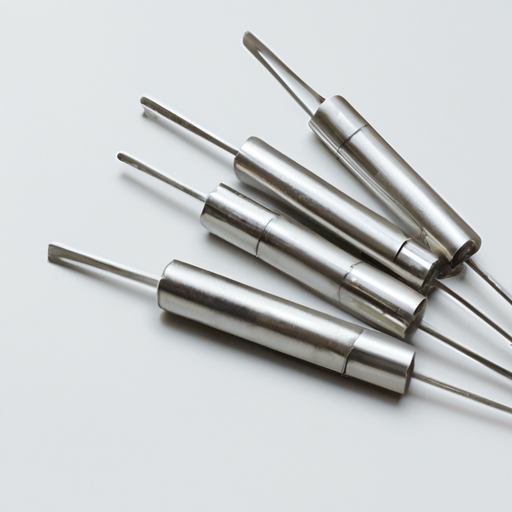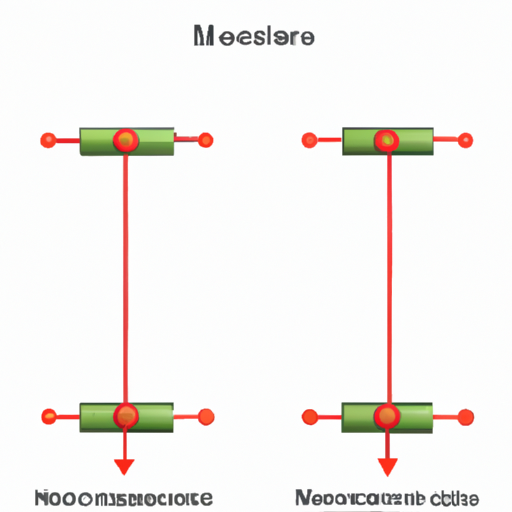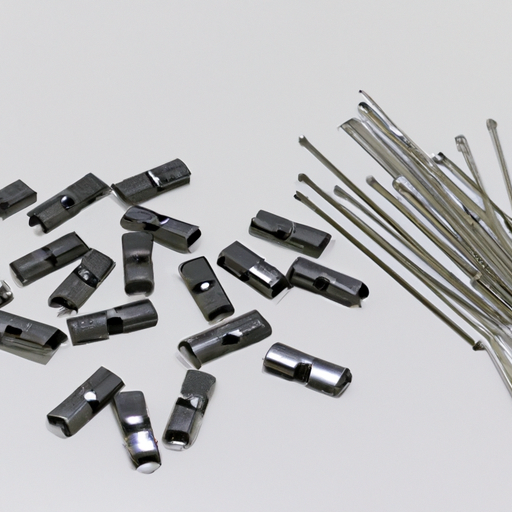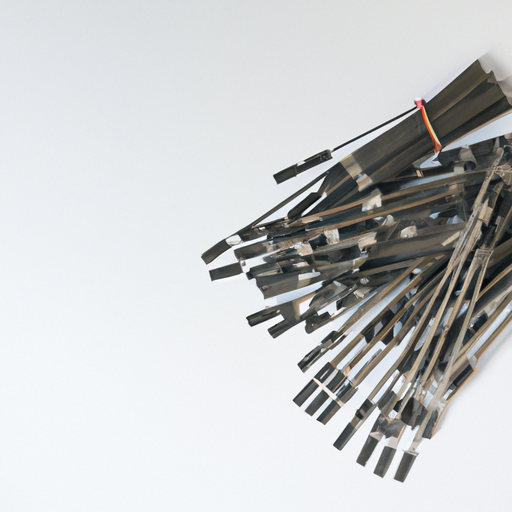What are the Advantages of Fuse Resistor Products?
I. Introduction
In the ever-evolving landscape of electrical engineering, the need for efficient and reliable components is paramount. Among these components, fuse resistor products have emerged as a critical solution for enhancing circuit protection and performance. A fuse resistor combines the functionalities of a fuse and a resistor, providing both overcurrent protection and resistance in a single package. This article aims to explore the advantages of fuse resistor products, their applications, and considerations for selection, highlighting their significance in modern electronics.
II. Understanding Fuse Resistors
A. What is a Fuse Resistor?
A fuse resistor is a unique component that integrates the properties of a fuse and a resistor. It serves a dual purpose: it acts as a resistor to limit current flow and as a fuse to protect circuits from overcurrent conditions. When the current exceeds a predetermined threshold, the fuse element within the resistor will blow, interrupting the circuit and preventing damage to sensitive components.
B. Types of Fuse Resistors
There are several types of fuse resistors, each designed for specific applications and performance requirements:
1. **Wirewound Fuse Resistors**: These are constructed using a wire wound around a ceramic or insulating core. They offer high power ratings and are suitable for applications requiring robust performance.
2. **Thick Film Fuse Resistors**: Made by applying a thick film of resistive material onto a substrate, these resistors are known for their compact size and are often used in surface-mount technology (SMT) applications.
3. **Thin Film Fuse Resistors**: These resistors utilize a thin layer of resistive material, providing high precision and stability. They are ideal for applications where accuracy is critical.
III. Key Advantages of Fuse Resistor Products
A. Overcurrent Protection
One of the primary advantages of fuse resistor products is their ability to provide overcurrent protection. When excessive current flows through the circuit, the fuse element within the resistor will melt, breaking the circuit and preventing further damage. This mechanism is crucial in safeguarding sensitive electronic components from potential harm.
B. Space Efficiency
In today's compact electronic designs, space is at a premium. Fuse resistors are designed to be compact, allowing them to fit seamlessly into circuit boards without taking up excessive space. This space efficiency is particularly beneficial in consumer electronics, where miniaturization is a key trend.
C. Cost-Effectiveness
Using fuse resistors can lead to significant cost savings in manufacturing. By combining the functions of a fuse and a resistor, these components reduce the overall component count in a circuit. Fewer components mean lower manufacturing costs, making fuse resistors an economically attractive option for designers.
D. Enhanced Reliability
Fuse resistors are known for their consistent performance and long lifespan. Unlike traditional fuses that may fail after a single overcurrent event, fuse resistors can withstand multiple overcurrent conditions without compromising their integrity. This reliability is essential in applications where downtime can be costly.
E. Versatility
Fuse resistors are versatile components that can be used across various industries. From consumer electronics to automotive applications, their ability to provide both resistance and protection makes them suitable for a wide range of circuit designs. This versatility allows engineers to implement them in diverse applications without the need for multiple components.
F. Thermal Management
Effective thermal management is crucial in electronic systems to ensure optimal performance. Fuse resistors possess excellent heat dissipation properties, which help manage the thermal load within a circuit. By efficiently dissipating heat, they contribute to the overall reliability and longevity of the system.
IV. Applications of Fuse Resistor Products
Fuse resistor products find applications in numerous industries, including:
A. Consumer Electronics
In consumer electronics, fuse resistors are commonly used in power supplies, chargers, and audio equipment. Their ability to protect sensitive components from overcurrent while maintaining compact designs makes them ideal for these applications.
B. Automotive Industry
The automotive industry relies heavily on fuse resistors for various applications, including power distribution, lighting systems, and electronic control units (ECUs). Their reliability and ability to withstand harsh environmental conditions make them a preferred choice in automotive designs.
C. Industrial Equipment
In industrial settings, fuse resistors are used in machinery and equipment to protect against overcurrent conditions. Their robust construction and reliability ensure that critical systems remain operational, minimizing downtime.
D. Telecommunications
Telecommunications equipment requires reliable components to ensure uninterrupted service. Fuse resistors are used in power supplies and signal processing circuits to protect against overcurrent, ensuring the integrity of communication systems.
E. Renewable Energy Systems
As the demand for renewable energy solutions grows, fuse resistors play a vital role in solar inverters and wind turbine controllers. They help protect these systems from overcurrent conditions, contributing to the overall efficiency and reliability of renewable energy technologies.
V. Comparison with Traditional Fuses and Resistors
A. Advantages Over Traditional Fuses
1. **Faster Response Times**: Fuse resistors typically have faster response times compared to traditional fuses. This quick action helps prevent damage to sensitive components during overcurrent events.
2. **Reduced Risk of Failure**: Traditional fuses can fail due to environmental factors or aging, leading to circuit failures. Fuse resistors, on the other hand, are designed for enhanced reliability, reducing the risk of failure.
B. Advantages Over Traditional Resistors
1. **Dual Functionality**: Unlike traditional resistors that only limit current, fuse resistors provide both resistance and overcurrent protection in a single component. This dual functionality simplifies circuit design and enhances protection.
2. **Improved Circuit Protection**: Fuse resistors offer better circuit protection compared to traditional resistors, as they can interrupt the circuit during overcurrent conditions, preventing damage to other components.
VI. Considerations When Choosing Fuse Resistor Products
When selecting fuse resistor products, several factors should be considered:
A. Electrical Specifications
1. **Voltage and Current Ratings**: Ensure that the fuse resistor can handle the voltage and current levels of the application. Selecting a component with appropriate ratings is crucial for reliable performance.
2. **Resistance Values**: Choose the correct resistance value to achieve the desired current limiting and circuit protection.
B. Environmental Factors
1. **Operating Temperature Range**: Consider the operating temperature range of the application. Fuse resistors should be able to function effectively within the specified temperature limits.
2. **Humidity and Moisture Resistance**: In environments with high humidity or moisture, select fuse resistors that offer adequate protection against these conditions to ensure long-term reliability.
C. Manufacturer Reputation and Quality Assurance
Choose fuse resistor products from reputable manufacturers known for their quality assurance processes. Reliable manufacturers provide detailed specifications and testing data, ensuring that the components meet industry standards.
VII. Conclusion
In summary, fuse resistor products offer a multitude of advantages, including overcurrent protection, space efficiency, cost-effectiveness, enhanced reliability, versatility, and effective thermal management. Their applications span various industries, making them indispensable in modern electronics. As technology continues to advance, the importance of fuse resistor products will only grow, paving the way for innovative designs and improved circuit protection.
As we look to the future, trends in fuse resistor technology may include advancements in materials, miniaturization, and enhanced performance characteristics. These developments will further solidify the role of fuse resistors in ensuring the safety and reliability of electronic systems. In conclusion, fuse resistor products are not just components; they are essential elements that contribute to the functionality and longevity of modern electronic devices.












